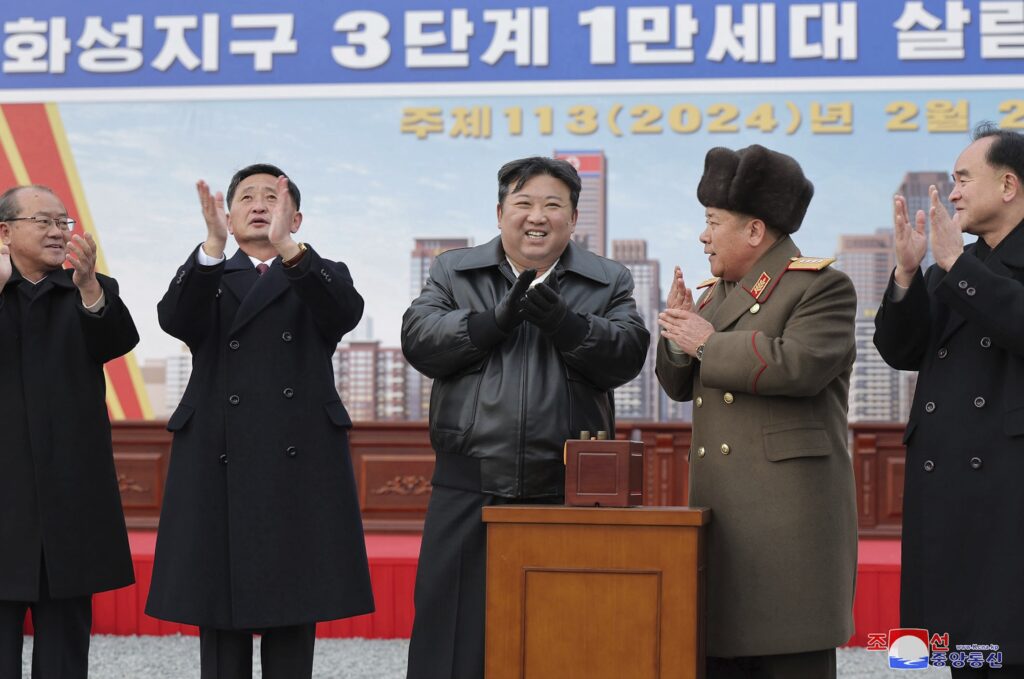North Korean dictator Kim Jong Un has sent “at least several million shells” to Russia in exchange for food supplies, according to one of South Korea’s top officials.
“You can say that at least several million shells have been sent,” South Korean Defense Minister Shin Won-sik told South Korea-based reporters.
Shin’s assessment put a spotlight on the scale of military aid that Russian President Vladimir Putin has obtained from foreign sources at a time when American aid to Ukraine remains blocked by a political standoff in Washington. And although much of the international discussion of Russia’s partnership with North Korea has focused on potential technology transfers, Kim seems to be prioritizing a more mundane but critical issue.
“It seems that food accounts for the largest proportion (of shipments from Russia), which is believed to have stabilized food prices in North Korea, with other necessities also included,” the South Korean defense chief said, per Yonhap.
The deliveries would tend to help Pyongyang to alleviate shortages of such severity that Kim acknowledged the regime’s “failure to satisfactorily provide” for the people living under the communist regime.

“Today, failure to satisfactorily provide the people in local areas with basic living necessities including condiments, foodstuff and consumption goods has arisen as a serious political issue that our Party and government can never sidestep,” Kim said during a late January meeting of the North Korean political bureau, per a 38 North translation.
In the lead-up to that gathering of regime officials, Kim sent his top diplomat to Moscow to continue a series of high-level exchanges punctuated by his own trip to Russia to meet Putin in the fall of 2023. “We have repeatedly said — and I am ready to reiterate it — that North Korea is an important partner for us and we intend to boost relations in all areas, including sensitive ones,” Kremlin spokesman Dmitry Peskov said in January.
The open coordination between Putin and Kim has stoked U.S. and European unease about an emergent network of autocrats hostile to Western interests.
“The murderous invasion of Ukraine is aided and abetted by a crime family of dictators from Iran, North Korea, but also lauded by, among others, those ruling Cuba, Venezuela, and Syria,” Polish Foreign Minister Radoslaw Sikorski said Monday at the Atlantic Council in Washington, D.C. “This mix of terrorists and dictators are united by one thing — their hatred of America, the West, and of democracy. … They’re hungry to show that the US is weak, ineffective, and hopelessly divided. That America can no longer act effectively, or be a force for good in the world.”
Sikorski offered that warning as part of an argument in favor of renewed U.S. aid to Ukraine, which faces ammunition shortages as President Joe Biden and congressional Republicans remain at loggerheads over the military aid and the border crisis.
“At this moment, only America has the military capacity and might to enable Ukraine so that she can survive this dangerous moment. This urgent action is a life-saving bridge,” the Polish official said. “On the other side, the nations of Europe are ramping up to build a deterrence that together with America can contain Putin in this long run … actually, in the medium term. But this year is crucial. And this year, we cannot do without America.”
And Putin can hardly do without North Korea, a dynamic that has raised international suspicions that the Kremlin will buttress Kim’s illicit nuclear weapons program. Those anxieties appeared vindicated by the recent launch of a North Korean satellite, a breakthrough for Pyongyang widely perceived as stemming from Kim’s meeting with Putin at a Russian spaceport.
CLICK HERE TO READ MORE FROM THE WASHINGTON EXAMINER
Yet Shin, the South Korean defense minister, suggested that the satellite is not working.
“It shows no signs of functioning and is merely orbiting without activity,” Shin said. “It remains uncertain to what degree Russia will offer technology related to aircraft and ground equipment sought by North Korea. However, if Russia continues to receive more munitions from North Korea, the scope of technology transfer could increase.”
